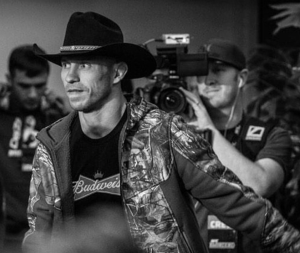The year was 2000. A Chimpanzee runs into a garage, turns on a stereo, climbs on a bucket wearing an e-trade t-shirt and starts to dance to La Cucaracha Cha as 2 awkward gentleman clap in off-timed support. I remember thinking, “this is hilarious, but a stupid commercial!”
Then the punch line, “We just wasted $2,000,000. What are you doing with your money?”. That was the moment that I started caring more about the commercials during the SuperBowl than the game itself.
Today the SuperBowl chatter and memes centered around 2 things: Pete Carroll’s terrible play call and, which commercial was the “best”.
More than previous years, the commentary on who ‘won’ the BrandBowl felt strangely off. What wasn’t sitting well with me was how the word “won” was being defined. Typically that means it generated more buzz in social media, and viewers liked it the most. In other words, a popularity contest. It’s like asking consumers a rudimentary, grade school crush question, “do you like me? Yes / No / Maybe”.
In this analysis, winning, is not necessarily about strategic brand building.
For instance, according to the USA Today Ad tracking report, Budweiser’s ‘Lost Dog’, performed the best of any commercial yesterday. I disagree.
Everyone loves the commercial, including me, but I don’t think it builds the Budweiser brand.
Don’t get me wrong, I don’t think it was bad for Budweiser. Budweiser is a staple of SuperBowl commercials, so I think there’s value in it, even if it’s just reminding consumers that they still exist, and someone out there must like to drink it.
My real point is that in a week, no one will care that the horses saved their ‘best bud’ from the ravenous wolves. I don’t think the commercial will have inspired greater brand loyalty among current Budweiser customers. And perhaps most important, I doubt it will have done anything to convince non-Budweiser drinkers to head out and buy a case of the American icon.
Compare that to something else Budweiser is doing that I think is building their brand.
Sponsoring UFC fighter, Donald “Cowboy” Cerrone.
 I’m willing to bet Budweiser gets more strategic bang for its buck, through their sponsorship of this gritty, tough, brash, rural, gutsy, no-nonsense, American rebel.
I’m willing to bet Budweiser gets more strategic bang for its buck, through their sponsorship of this gritty, tough, brash, rural, gutsy, no-nonsense, American rebel.
“Like the Budweiser brand he sponsors, Cowboy is simply down for whatever.” –Bradley Popkin for Bleacher Report
Cowboy’s attitude and the Budweiser brand essence are a hand in glove fit. Not only that, but Cerrone also connects with a strategically valuable demographic for Budweiser’s sales more than warm fuzzies and puppies ever will. It’s hard to imagine, Budweiser winning over the growing population of craft beer drinkers—those beer drinkers that see themselves as connoisseurs, not customers.
That’s why Budweiser’s other less talked about ad, was in my opinion, stronger for their brand and more in line with why I think the Cerrone sponsorship is smart. The other ad, drew a line in the sand between Budweiser and “fussy” craft beer drinkers.
Strong brands tend to not only tell you what they stand for, but also what they stand against (think Mac vs. PC or Dove vs. negative views of female beauty).
Budweiser, the brand for the no nonsense, American rebel that’s looking to have a good time, without the fuss. This message creates pride in those who see themselves as anti-craft beer and anti-hipster. A critical distinction for Budweiser in combating their loss of market share to craft beer.
So, while I get and enjoy the whole debate of who wins the BrandBowl, I think it has very little to do with which business wins, in the long run.


